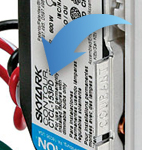
Explore Knowledge Articles
Lutron Connect Portal - System Monitor Tool
For more information, please see our Lutron Connect Portal Overview on the Lutron Connect Support Site.
For additional training, view the System Monitor - Overview Training (OVW 412) on Lutron's Lighting Control Institute (LCI) Online.
Note: A myLutron account and LCI registration is required to access training
Accessing System Monitor
System Monitor is accessed via the Place within the Lutron Connect Portal. When you select a Place, you will be greeted with the System Monitor screen, showing any Processors in the project, their MAC, Serial Number, Firmware, and Status.
Viewing System Time, Location, Date, MAC Addresses, and Networking Information
Select a Place and select a processor
Processor Details will be displayed.
Viewing Activity Logs
-
Select Activity Logs from the Processor Details page.
-
Select View to view an existing log, or select Create Activity Log File to generate a new log.
-
View Activity Log in app or Download Table Data.
For information on how to read the Activity Log, please see our System Activity Viewer section of the Troubleshooting within Lutron Designer article on the RadioRA 3 Support Site.
Creating a Support File
Support files created this way do not include the Project file for reference.
- Select Support File from the Processor Details page.
- Select Create Engineering Support File.
- Copy the code and email it to systemsupport@lutron.com with details on the issue you are experiencing. Please include timestamps and affected loads in your description.
Device Status Table
Scroll down to view the Processor's Links from the Processor Details screen.
This displays each device connected to the processor's link, it's device status, battery, and serial number.
For wired links on QSX/Athena, you will also see any reported Link Noise, Overrun Errors, and Framing Errors. For more details on what this means, hover your mouse over each for a brief description.
If you are encountering issues with non-responsive devices or activation issues and there are errors in any of these, we recommend following this guide: HomeWorks | Troubleshooting | Determining and troubleshooting Link Noise
For Clear Connect Type-X (CCX) devices, you can also view their Firmware Revision and the Processor's Noise Level.
If the Noise Level is Severe or Moderate and you are experiencing issues with transferring to Type-X devices, we recommend ensuring no 2.4Ghz emitting devices are nearby the Processor or Type-X Gateway.
Note: You may need to refresh the device's status or select Refresh Table to populate this information.
Remotely Rebooting Processors for RadioRA 3 and HomeWorks QSX Systems
Starting Debug Logging for Integration Troubleshooting
- Select Configure Debug Logging in the Processor Details screen.
- Select whether you want to enable, or disable, Debug Logging
Debug Logging enables the Processor to log more information than normal, such as network traffic and integration commands received/sent.
Check Connection History
Select Connection History in the Processor Details screen.
Note: Seeing disconnects for extremely short amounts of time is normal (Such as the ones pictured above) as the processor checks in for potential firmware upgrades automatically.


